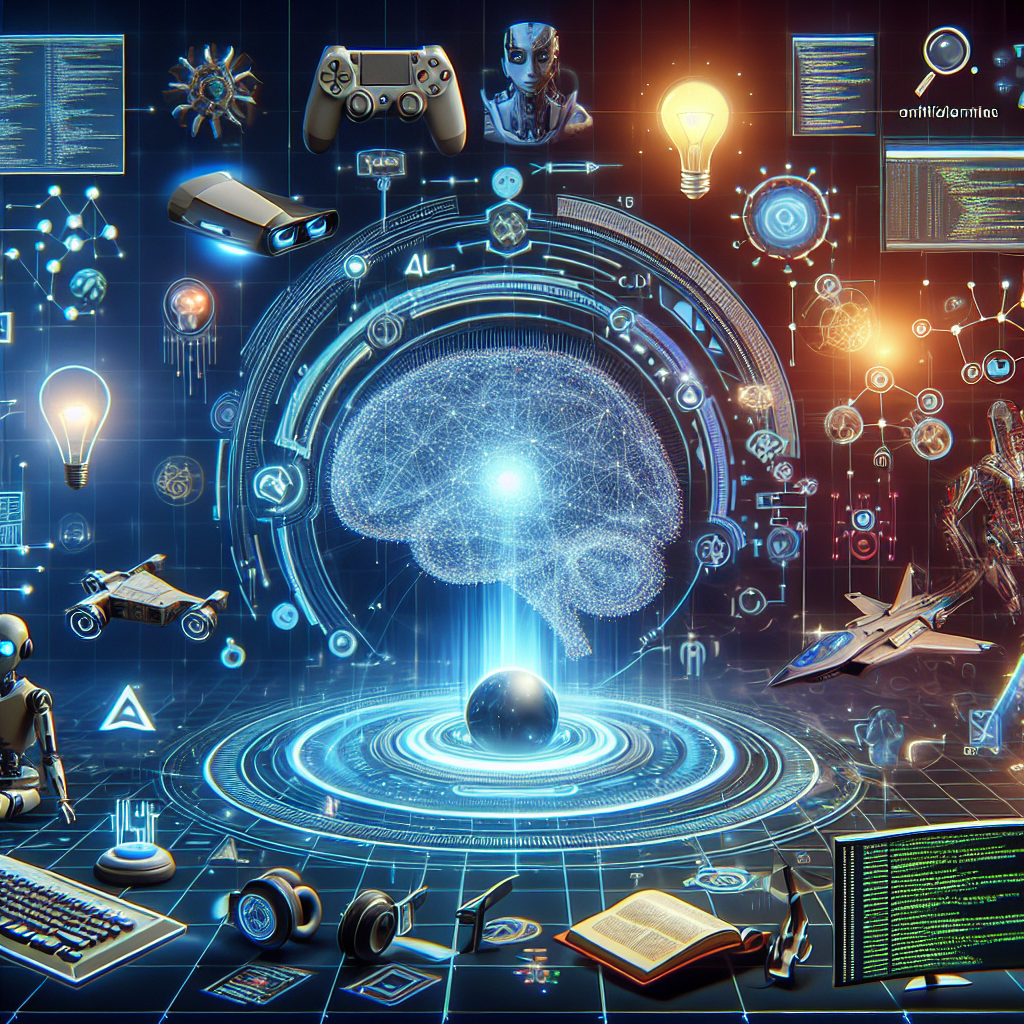Artificial Intelligence (AI) has become an increasingly important tool in the world of game development, particularly in the realm of game engine optimization techniques. Game engine optimization is the process of improving the performance and efficiency of a game engine, ensuring that games run smoothly and without any technical issues. With the rise of AI technology, developers are now able to utilize machine learning algorithms to optimize game engines in ways that were previously unimaginable.
One of the key benefits of using AI in game engine optimization is the ability to automatically identify and fix performance bottlenecks. Traditionally, developers would have to manually analyze the performance of a game engine, identify areas of inefficiency, and then implement optimizations to improve performance. This process could be time-consuming and error-prone, often resulting in suboptimal performance improvements. With AI, developers can now leverage machine learning algorithms to automatically analyze the performance of a game engine, identify bottlenecks, and suggest optimizations to improve performance. This not only saves time and effort for developers but also ensures that games run smoothly and efficiently.
Another benefit of using AI in game engine optimization is the ability to tailor optimizations to specific hardware configurations. Game engines need to run efficiently on a wide range of hardware configurations, from high-end gaming PCs to low-end mobile devices. Traditionally, developers would have to manually optimize game engines for different hardware configurations, a process that could be time-consuming and challenging. With AI, developers can now use machine learning algorithms to automatically optimize game engines for different hardware configurations, ensuring that games run smoothly on a wide range of devices.
AI can also be used to optimize game engines for specific game genres or types of gameplay. Different types of games have different performance requirements, with some requiring high frame rates and smooth animations, while others may prioritize realistic physics simulations or complex AI behaviors. By using machine learning algorithms, developers can analyze the performance requirements of a specific game genre and optimize the game engine accordingly. This allows developers to create games that are tailored to specific genres or gameplay styles, ensuring that games run smoothly and without any technical issues.
In addition to performance optimizations, AI can also be used to improve the visual quality of games. Real-time rendering techniques such as ray tracing and global illumination are computationally expensive and can be challenging to implement efficiently. With AI, developers can now use machine learning algorithms to optimize rendering techniques, ensuring that games look visually stunning while maintaining high frame rates. AI can also be used to generate realistic textures and animations, creating immersive and lifelike gaming experiences.
Despite the numerous benefits of using AI in game engine optimization, there are also some challenges and limitations to consider. One of the main challenges is the complexity of implementing AI algorithms in game engines. Developers need to have a deep understanding of machine learning techniques and algorithms in order to effectively leverage AI for game engine optimization. Additionally, AI algorithms can be computationally expensive, requiring powerful hardware to run efficiently. This can be a barrier for smaller game development studios that may not have access to high-end hardware.
Another challenge is the “black box” nature of AI algorithms. Machine learning algorithms can be complex and difficult to interpret, making it challenging for developers to understand how optimizations are being made. This lack of transparency can make it difficult to troubleshoot and fine-tune optimizations, potentially leading to suboptimal performance improvements. Developers need to strike a balance between leveraging the power of AI for game engine optimization and maintaining control over the optimization process.
Despite these challenges, the future of game engine optimization techniques looks promising with the integration of AI technology. As machine learning algorithms continue to advance, developers will have access to more powerful and efficient tools for optimizing game engines. AI can help developers create games that run smoothly, look visually stunning, and provide immersive gaming experiences for players. By leveraging the power of AI, developers can push the boundaries of what is possible in game development and create games that are truly groundbreaking.
FAQs:
Q: How does AI improve game engine optimization?
A: AI can automatically identify and fix performance bottlenecks, tailor optimizations to specific hardware configurations, optimize game engines for specific game genres or types of gameplay, and improve the visual quality of games.
Q: What are the challenges of using AI in game engine optimization?
A: Challenges include the complexity of implementing AI algorithms, the computational expense of AI algorithms, and the “black box” nature of AI algorithms.
Q: What is the future of game engine optimization techniques with AI?
A: The future looks promising with the integration of AI technology, as machine learning algorithms continue to advance and provide developers with more powerful and efficient tools for optimizing game engines.

